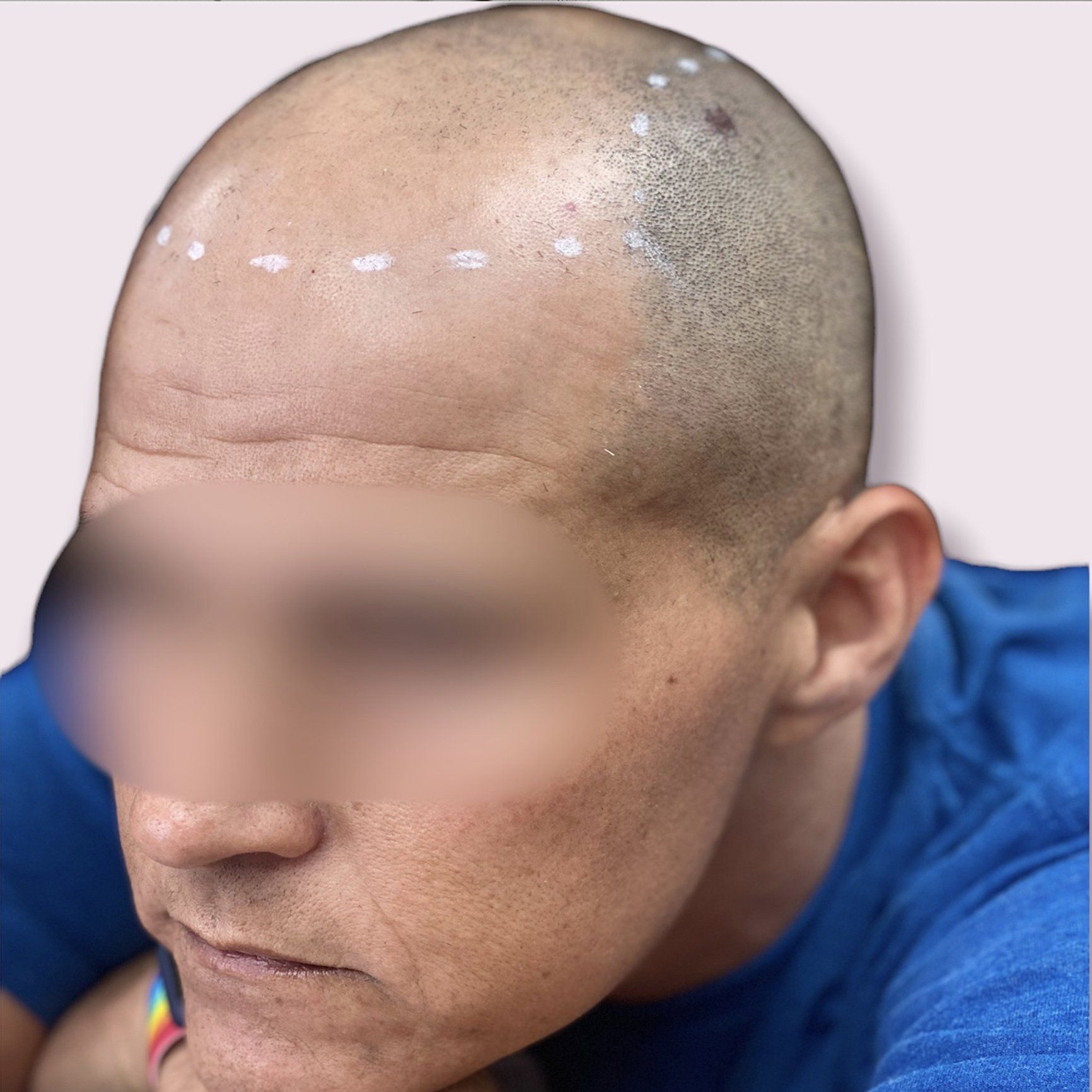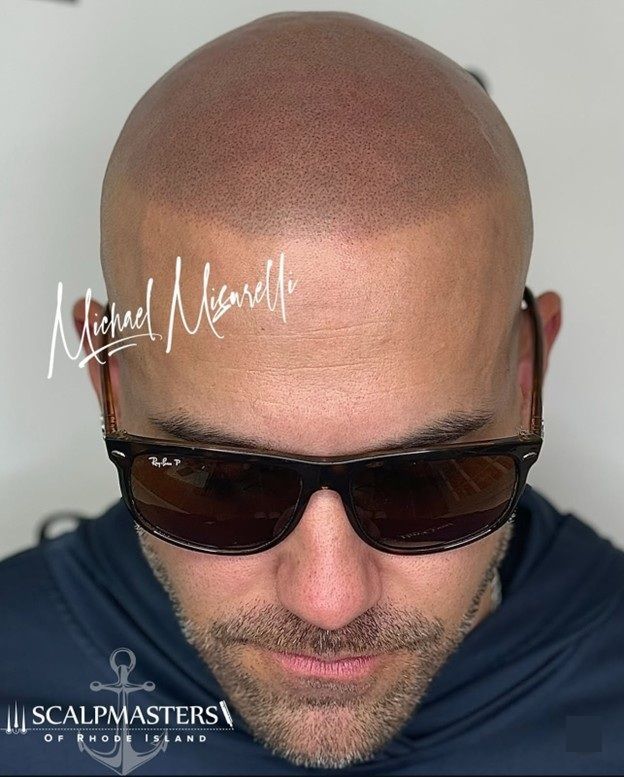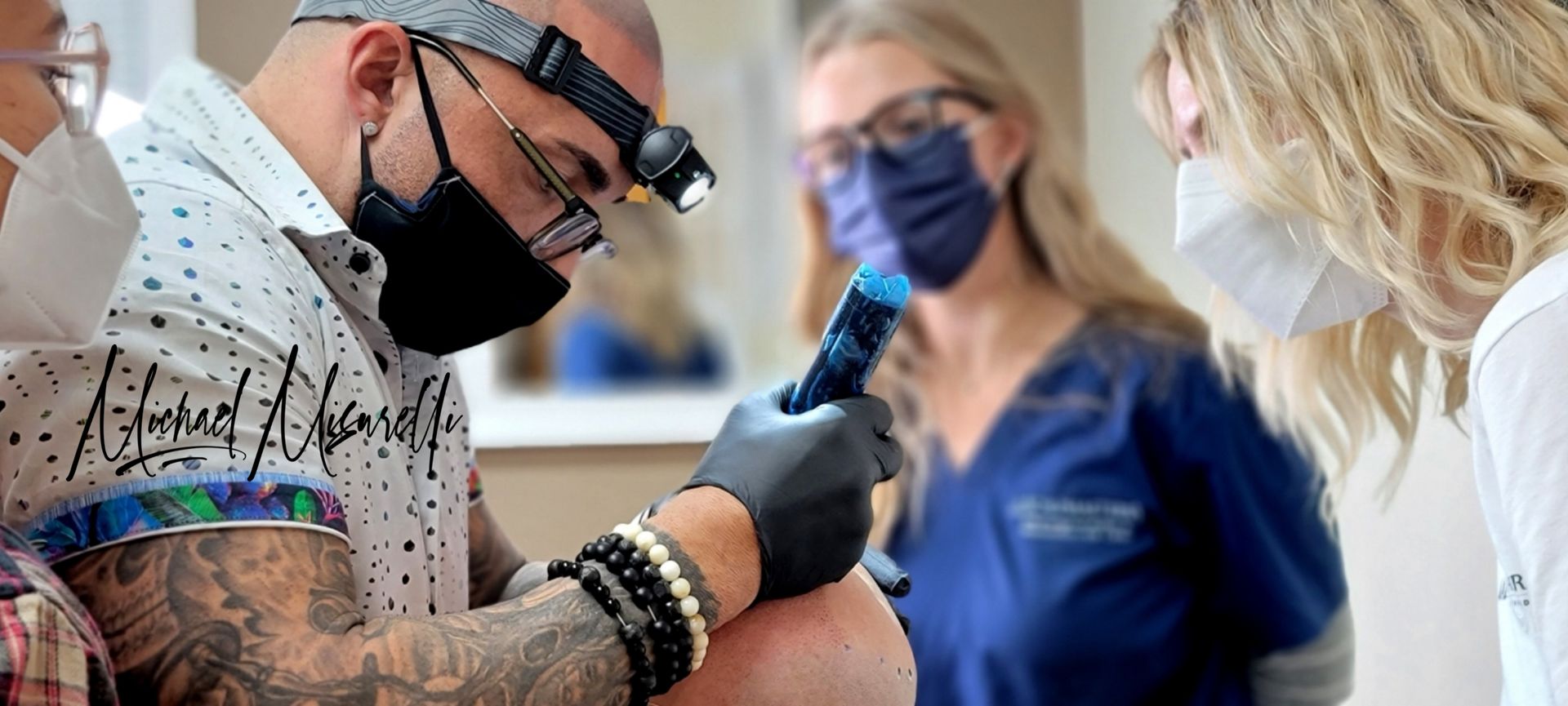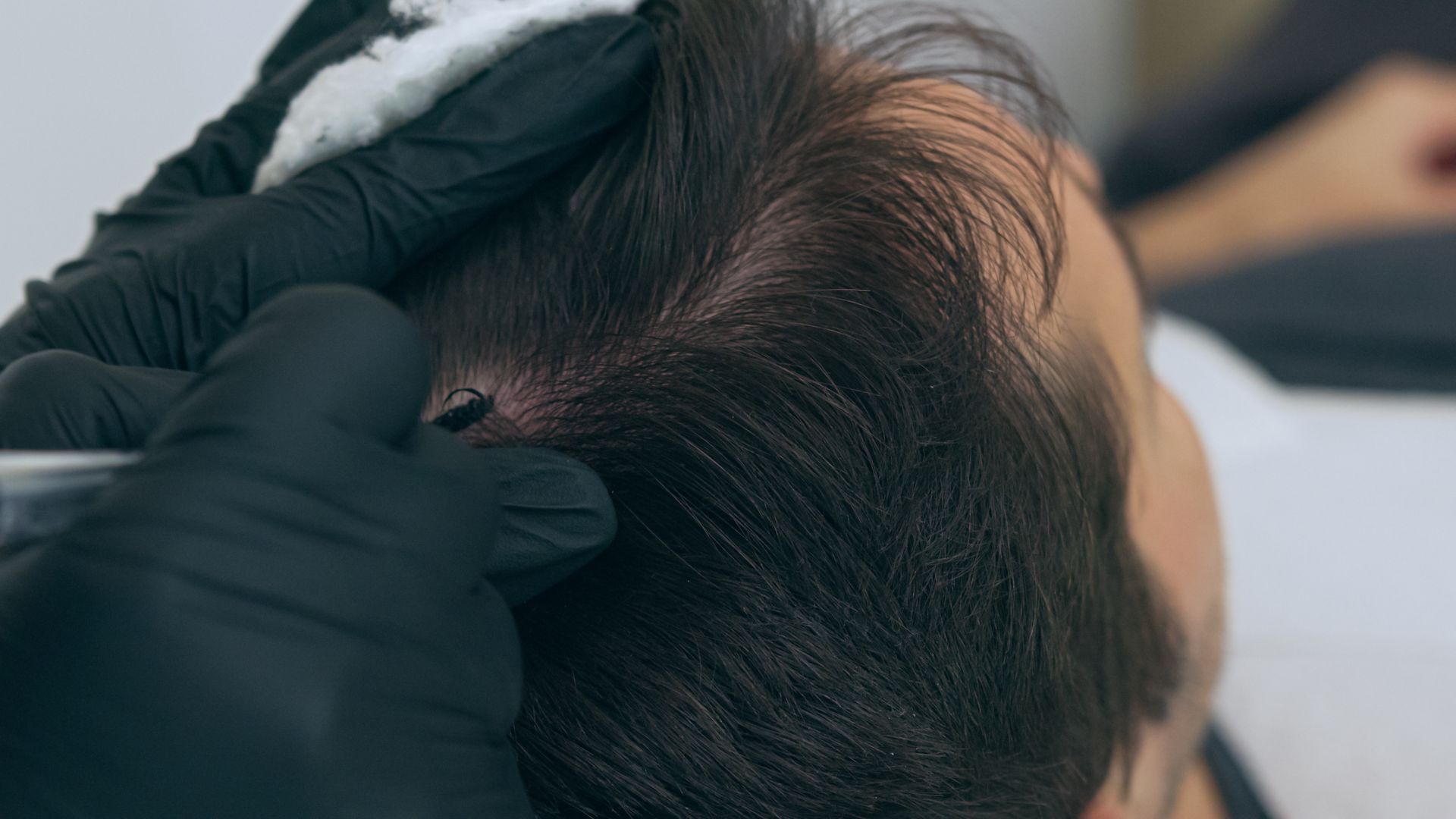Can Dandruff Cause Hair Loss? An In-Depth Look
Are you experiencing hair loss and dandruff at the same time? If so, you may be wondering if there is a connection between the two. This blog post will explore whether dandruff can cause hair loss and provide tips for preventing and treating it. As an expert in scalp health, ScalpMasters RI offers valuable insights on this topic. Read on to learn more!
Understanding Dandruff and Hair Loss
Dandruff and hair loss are two different conditions, but they can be related. Dandruff is a scalp condition that causes constant itchiness and flaking, while hair loss is the thinning or falling out of hair from the follicles. Dandruff does not directly cause temporary hair loss but can weaken the scalp's immune system and lead to fungal infections that damage hair follicles.
If left untreated, dandruff can progress into seborrheic dermatitis, which may cause inflammation in the scalp leading to excessive shedding of dead skin cells. This results in clogged pores that hinder the healthy growth of new hairs causing them to fall out more quickly than usual, resulting in temporary or permanent bald patches on your head. Therefore it is crucial for anyone experiencing persistent dandruff symptoms alongside a rapid or constant increase in their rate of hair fall to seek professional medical advice as soon as possible before any significant damage occurs.
What is Dandruff?
Dandruff is a common condition that affects the scalp and causes flaking, which can be accompanied by constant itching. The symptoms of dandruff include white or yellow flakes on the scalp and hair, oily or dry skin, and redness of the scalp. Various factors can contribute to dandruff, such as fungal infections, follicles irritation, or stress.
Dandruff is not just caused by oily or dry skin, but can also be a result of medical conditions such as psoriasis or eczema.
The cause of dandruff varies from person to person, but it is typically related to an imbalance in oil production on the scalp. Dandruff may also result from certain medical conditions like psoriasis or eczema. Treatment options for mild cases of dandruff include medicated shampoos containing salicylic acid, tar-based products, or ketoconazole which helps treat any underlying fungal infection. In severe cases where there might be hair loss due to constant irritation, corticosteroids might be prescribed along with other medications, such as oral antifungals, depending on what's causing your specific case of dandruff.
What is Hair Loss?
Hair loss is a common condition that affects both men and women. It can be caused by various factors, such as genetics, hormonal changes, constant itching, or flaking, leading to damage in the hair follicles. There are several types of hair loss, including pattern baldness, telogen effluvium, and alopecia areata.
Causes of Hair Loss:
- Genetics
- Hormonal changes
- Constant itching or flaking leads to damage in the hair follicles
- Fungal infections
Prevention and treatment methods for Hair Loss:
- Proper hair care routine
- A healthy diet with essential vitamins and minerals
- Stress management techniques
- Treatment options like scalp micropigmentation (SMP) involve tattooing tiny dots resembling natural scalp hair. SMP provides an affordable solution suitable for all stages of baldness.
It's essential to consult with a medical professional specializing in treating hair loss before starting any treatments to determine the underlying cause of your specific case.
The Connection Between Dandruff and Hair Loss
Dandruff can contribute to hair loss by constantly itching and flaking, damaging hair folliclThe Connection Between Dandruff and Hair Losses. Additionally, fungal infections associated with severe dandruff can weaken your hair's roots and lead to shedding. While treating dandruff may not reverse hair loss, it can prevent further damage by improving scalp health.
However, it is worth noting that other factors, such as stress or genetics, may cause both dandruff and hair loss. Therefore, a comprehensive approach that tackles underlying causes alongside dandruff treatment might provide a more effective solution for preventing or reversing hair loss in some cases.
Can Dandruff Cause Hair Loss?
Dandruff is a common scalp condition that can cause irritation and flaking. While it doesn't directly cause hair loss, severe dandruff can contribute to hair thinning by weakening the hair follicles. When left untreated, chronic inflammation from dandruff can lead to scarring and permanent damage to the scalp, which may result in permanent hair loss.
Genetics and hormonal imbalances may also increase the risk of hair loss from dandruff. It's essential to address any underlying causes of dandruff and seek medical treatment if you experience excessive shedding or noticeable changes in your hair's thickness or texture. Proper care and attention enable managing dandruff and preventing further damage that could lead to significant hair loss.
Research on Dandruff and Hair Loss
Studies have shown a potential link between dandruff and hair loss. The scalp condition may lead to inflammation and damage to the hair follicles, resulting in shedding or bald patches. In addition, excessive scratching of the scalp due to itching caused by dandruff can also contribute to hair loss.
To address dandruff-induced hair loss, researchers study various treatments that simultaneously target both conditions to address dandruff-induced hair loss. Existing research suggests that medicated shampoos containing ingredients such as ketoconazole or salicylic acid may help reduce inflammation and improve the overall health of the scalp. Other potential treatment options include topical corticosteroids and light therapy.
- Studies indicate a correlation between dandruff and hair loss.
- The role of inflammation in dandruff-related hair loss is being studied.
- Research on treating dandruff-induced hair loss includes medicated shampoos, topical corticosteroids, and light therapy.
How Dandruff May Contribute to Hair Loss
Excessive scalp shedding due to dandruff can hurt hair follicles. When the scalp is constantly flaking, it can clog hair follicles and prevent new hair growth. This may result in thinning or balding patches on the scalp.
Scratching or rubbing irritated areas caused by severe dandruff may cause potential damage to hair follicles as well, leading to further hair loss. Additionally, fungal infections commonly associated with severe dandruff can also contribute to hair loss as they weaken the roots of the hair and inhibit their growth.
It's essential to address any signs of dandruff early on and seek medical treatment, if necessary, to prevent further damage that could lead to permanent baldness.
Factors That May Increase the Risk of Hair Loss from Dandruff
While dandruff alone may not directly cause hair loss, several factors could increase the risk of experiencing hair loss due to dandruff. One such factor is a genetic predisposition, where an individual may be susceptible to co-occurring conditions. Additionally, hormonal imbalances can exacerbate inflammation in the scalp and contribute to hair thinning or baldness.
Environmental factors also play a role in increasing the risk of hair loss from dandruff. Polluted air, high-stress levels, and poor diet can all trigger or worsen scalp conditions like dandruff and lead to eventual hair fall. For those experiencing these symptoms, it's essential to seek professional treatment options that target both underlying causes of their condition to achieve long-lasting results.
Preventing and Treating Dandruff-Related Hair Loss
Dandruff can contribute to hair loss, but it is not usually the sole cause. Maintaining good scalp hygiene and using anti-dandruff shampoos can help prevent dandruff-related hair loss. Treatment options include over-the-counter remedies such as salicylic acid, coal tar shampoo, prescription-strength products like ketoconazole, and topical steroids. A dermatologist may recommend oral medication or light therapy to treat dandruff-related hair loss in severe cases.
Lifestyle Changes to Prevent Dandruff and Hair Loss
Regularly washing hair with a gentle shampoo is one of the best lifestyle changes to prevent dandruff and hair loss. It helps keep the scalp clean by removing excess oil, dead skin cells, and product buildup that can trap bacteria and fungi. Avoid using hot water on your scalp as it can strip away natural oils from your hair, causing dryness that triggers dandruff.
Reducing stress levels through exercise or meditation has also been linked to healthier hair growth. Stress is known to disrupt hormones crucial for healthy follicle function, which can lead to thinning or shedding hair. Here are some more tips:
- Use lukewarm water when showering
- Massage scalp regularly
- Eat a balanced diet high in vitamins A, C, D & E
Over-the-Counter and Prescription Treatments for Dandruff and Hair Loss
One of the most common treatments for dandruff and hair loss is medicated shampoos containing ingredients like ketoconazole or salicylic acid. These shampoos work by reducing inflammation on the scalp, which can often be a cause of both conditions. In addition, applying topical corticosteroids to reduce inflammation on the scalp has also been shown to be effective in treating dandruff and hair loss.
It's For more severe cases, doctors may prescribe oral antifungal medications. These medications are used when other treatments have failed or when there is evidence of an underlying fungal infection causing the symptoms. It's essential to speak with your doctor before starting any medication regimen. They can assess whether it's safe and appropriate for you based on your medical history and current health status.
Scalp Micropigmentation as a Treatment for Hair Loss
Before deciding if Scalp Micropigmentation (SMP) suits you, it's essential to understand what the treatment entails. SMP involves tattooing tiny dots on the scalp to mimic hair follicles and create the appearance of a full head of hair. While this procedure can effectively solve hair loss, it may not suit everyone.
When researching SMP providers in your area, look at their track records and read customer reviews before choosing one to work with. Remember that while some discomfort during the procedure is routine, numbing agents can be used to minimize pain.
If you're considering scalp micropigmentation (SMP) as a treatment option, research beforehand and prepare for what's involved. With proper planning and realistic expectations about likely results, scalp micropigmentation could provide a lasting solution for your hair loss concerns.
At ScalpMasters RI, we specialize in scalp micropigmentation (SMP), a non-invasive treatment that can restore the appearance of a full head of hair. Our team has over 20 years of experience in the field, and we use the latest technology and techniques to ensure the most precise and natural-looking results. Don't suffer in silence. Contact ScalpMasters RI today for a free consultation and take the first step towards regaining your confidence.
Learn More
What's New
Latest Hair Loss Solutions & Guides





